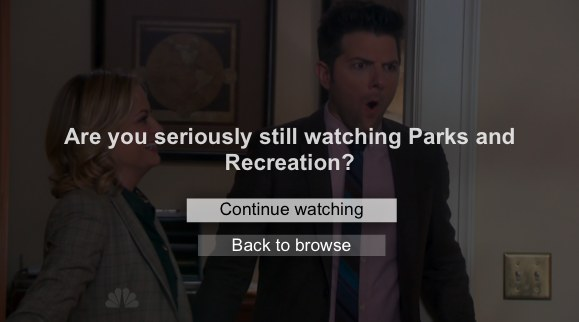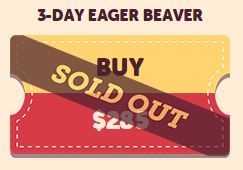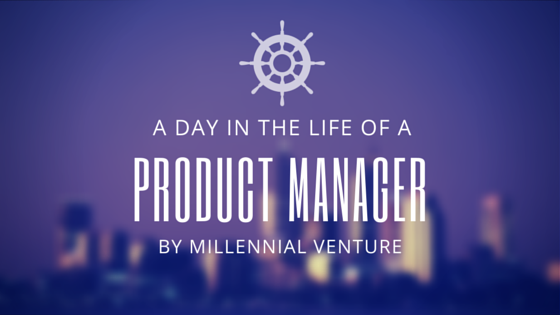passion
Why The Hard Things To Do Are The Right Things To Do
We’re obsessed with success stories. We love to read about the latest IPO or overnight success and dream about it. We say “why can’t that happen to me?” while we sit on our couch covered in Doritos Locos Taco crumbs, getting annoyed when Netflix asks “are you still there?” Of course I am Netflix, now get on with the next episode of Parks and Rec.

Between episodes we look at our Facebook or Instagram feed and see our friends climbing a mountain or sitting on a beach somewhere. “Don’t they ever work? They got really lucky to get the job they have.” The last trip we took was to Iowa last year for a friend’s wedding, which was also the last time we negotiated a 3% raise at work.
Why do we expect extraordinary results when we’re doing the same ordinary things as everyone else?
How to Get the VIP Treatment with Concierge Services
I walked out of a meeting at 11am and felt a buzz in my pocket. I checked my phone to find 16 text messages in a group text from old college roommates, peer pressuring each other into buying presale tickets to the Outside Lands music festival in August. I debated whether or not I wanted in for about four seconds, until I remembered this delicious beast from last year:
I rushed back to my desk. Uh oh, the presale had already been up for an hour. I frantically typed my password, logged on to buy tickets and was greeted with this gem:
Damn! Of course, presale tickets sell out in a few minutes. I resigned myself that I had missed the window of opportunity due to a work meeting. I’d have to wait for normal sale tickets, but then they’d be even more expensive and be gone even faster. Then it hit me!
Day in the Life of a Product Manager
Here comes the first installation of the ‘Day in the Life’ series. Why are we reading about what jobs other people have?
High schoolers graduate and go to college without knowing what jobs are out there. Freshmen pick their majors and change them over and over again without knowing how it affects (or doesn’t affect) their future. Graduates take an entry-level job, grind out 40 hours a week and come home to crash on the couch to binge reruns on Netflix, wondering if they’re the only one who hasn’t found their passion.
We want to know what you do, why you do it, how you got there and what makes you good at it. We want to know if it’s for us, why we’d like it and what we need to do to get it.
What is your name? How old are you and what do you do? How long have you been there?
Hi Max! My name is Patrick, I’m 26 years old and I’ve been a Software Product Manager at a medical device company for about 3 years.
How did you find out about product management? Did you know that this job existed before?
I had never heard of Product Management, and it turns out not many people have. Business schools typically offer things like Accounting, Finance and Marketing. Not a major called Product Management. The closest thing might be found in an Entrepreneurial Business course, except from experience those courses typically help you practice “coming up with big ideas” instead of managing a series of product processes.
I usually explain it like this. Companies get big. Really big. Thousands of people working in a hundred different departments, each with a very specific task. Accounting manages the books. Sales takes orders. Development churns out product. It’s the most popular way to grow a business: hire quality people and let them do what they’re best at.
But as a company gets bigger and adds more and more products things go haywire pretty quickly. Suddenly the accounting team doesn’t know what they’re issuing an invoice for and they’ve never heard of that product. The Sales team has 30 things to sell and can’t remember the difference between Thing A and Thing B. So the company segments, and segments, and specializes, and specializes. Product Management is an attempt to beat the org chart. It’s about making someone in charge of a concept, not a task. If they own the concept, the tasks all fall in line beneath it.
What is a typical day like at work?
What a hostel hangover taught me about finding purpose
I sit, engulfed by a beanbag chair in the communal living room of a hostel in Krakow, surrounded by young people from around the world. Everybody has their story. Where they’re from, how they ended up here, where they’re going next. British voices across the room talk about taking their gap year, while German voices recount how they’re traveling after finishing university.
I’m engrossed, listening to somebody who grew up a half hour away from me talk about how she quit her job and decided to travel Europe for as long as she can. She’s 24, maybe 25, but she has been traveling for six months already.
“How did you do it?” I ask eagerly. “How did you save up enough to pay for six months of travel? Other people are out there trying to get jobs and you’ve already had yours, quit and backpacked around Europe.”
I lean in to make sure I don’t miss the secret. Her answer surprised me, and it went on to help me discover what career I’d make for myself.
Internship Interviews: DOs and DON'Ts
 Over the weekend I had the pleasure of attending the Young Alumni Mentoring program’s Sophomore Summit at my alma mater. The program is for recent graduates to mentor sophomores in the business school; so far I’ve really enjoyed the opportunity to meet with these sophomores and help out where I can, even if it’s just reassuring them that the job search isn’t hopeless.
Over the weekend I had the pleasure of attending the Young Alumni Mentoring program’s Sophomore Summit at my alma mater. The program is for recent graduates to mentor sophomores in the business school; so far I’ve really enjoyed the opportunity to meet with these sophomores and help out where I can, even if it’s just reassuring them that the job search isn’t hopeless.
I was part of a group of alums helping out with interviewing skills. Given that I just recently completed a months long interview process, it was all very relevant to me.
Our group was responsible for covering the basic ‘get to know you’ interview questions as opposed to behavioral or resume questions. We pretty quickly realized that every group had the same questions. I recently read that you should do repeatable work that benefits everyone instead of one or two people – instead of writing an email, write a blog post.
On that note, here are some of the lessons that our group tried to impart for college students internship searching and interviewing.
Just want the summary? Enter your email address below to view summarized tips, examples and interview critiques.
The Secret to Doing the Work You Love
Think about a typical day at work. Are you excited about what you’re doing, or are you dreading it and waiting to sneak out at 5? If the latter, you’re not alone. According to Gallup, 13% of workers worldwide are engaged at work while the other 87% are either not engaged or actively disengaged. That’s a lot of people spending a lot of time miserable at work. In the US the numbers are 30% and 70%. Better, but still not great odds for you and me.
We want to be in the 30% of people who are inspired and motivated and enjoy what they do! Not only because we’ll be happier at work, but also because people who are happier at work perform better and get recognized for it. But most of all, you’re going to spend half of your waking hours at work so you’d better find something you can tolerate. The alternative? Waiting it out and hoping that it’ll get better. You know the quote “the definition of insanity is doing the same thing over and over and expecting different results.” It may not have been Albert Einstein, but it still makes some sense here. It’s going to take a concerted effort to define and find the type of work that you thrive in.
We all agree that we want to be happy at work. Our whole lives we’ve been told “if you love what you do, you’ll never work a day in your life” or “follow your passion.” Those both sound great. On the other hand, they’re not actionable and they don’t tell us HOW to figure it out.
The Lesson of the CEO and the fisherman: passion, cost and the invisible rules
I really like the story of a Wall Street CEO who visits Mexico with his family.
The CEO is looking to have a really fresh meal so he goes to the docks in the town and finds a man unloading his fishing boat with his morning haul. He buys a great looking fish and starts talking to the fisherman. The fisherman says “every day I fish for a few hours in the morning, then I eat lunch with my family, take a siesta, visit with friends, have dinner and go to bed.” The CEO says “Well if you fished for a few more hours every day you could buy a bigger boat. Then you could manage a team of fishermen and buy more boats and then move to the United States to manage your company. Then you could build your business until you can sell it to a major company and retire!” The fisherman ponders that for a second. “What would I do after that?” he says. The CEO responds “It would be great! You could move to a tropical village. You could fish for a few hours, eat lunch with your family, take a siesta, visit your friends, have dinner and go to bed.”
I feel like I read this story in either The Four Hour Work Week or The E-Myth, but I love it and there are a few lessons we can take from it.




